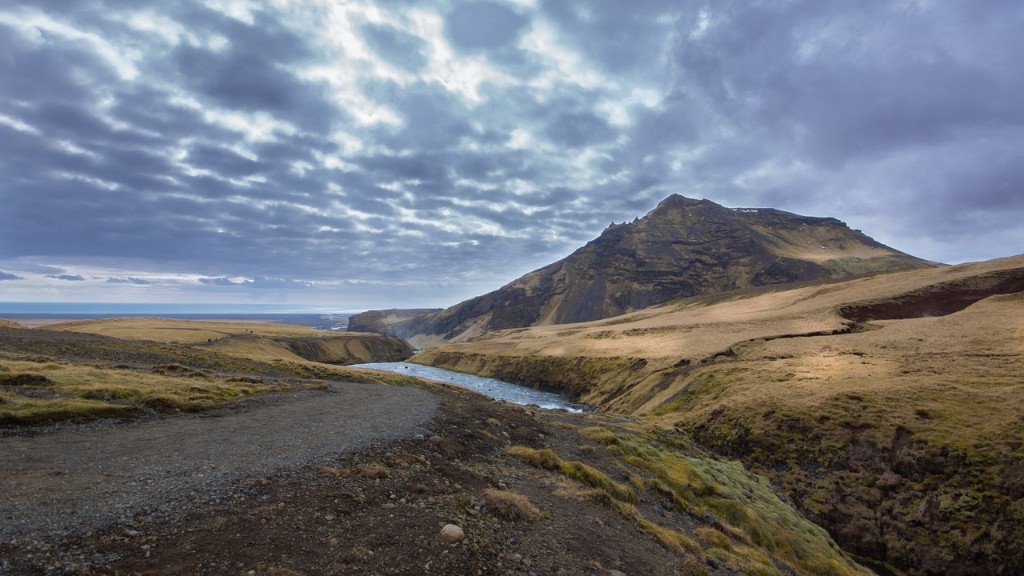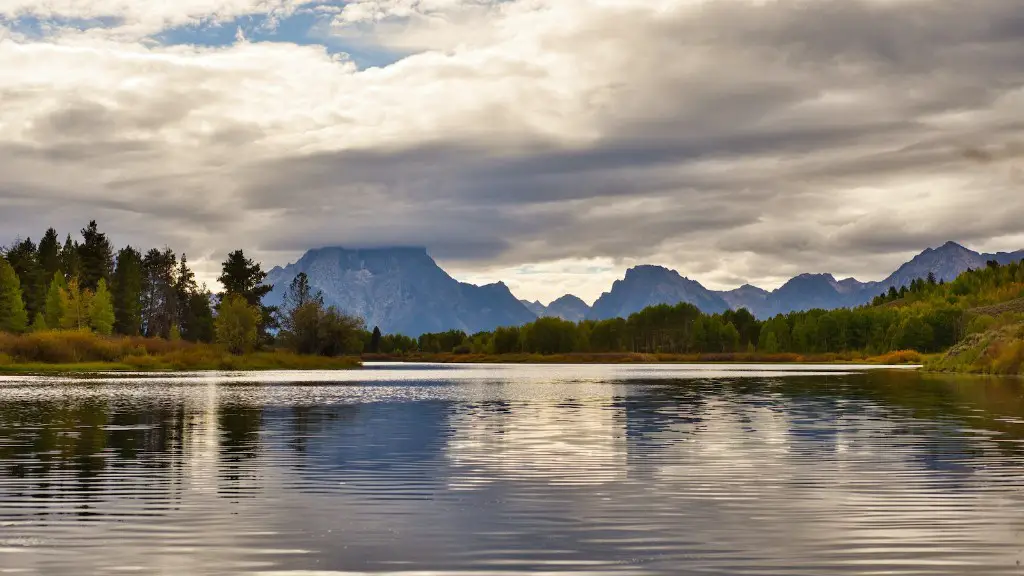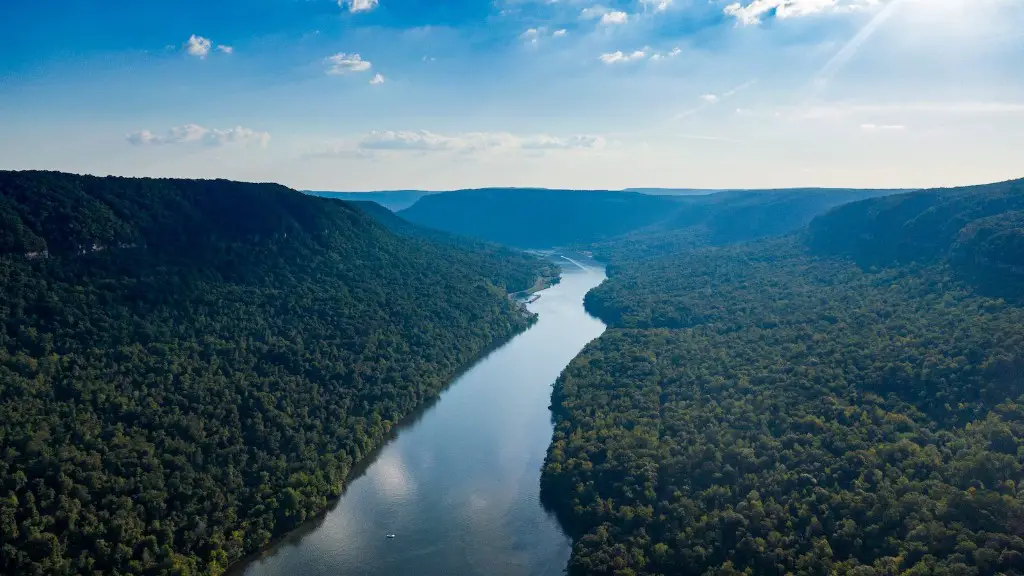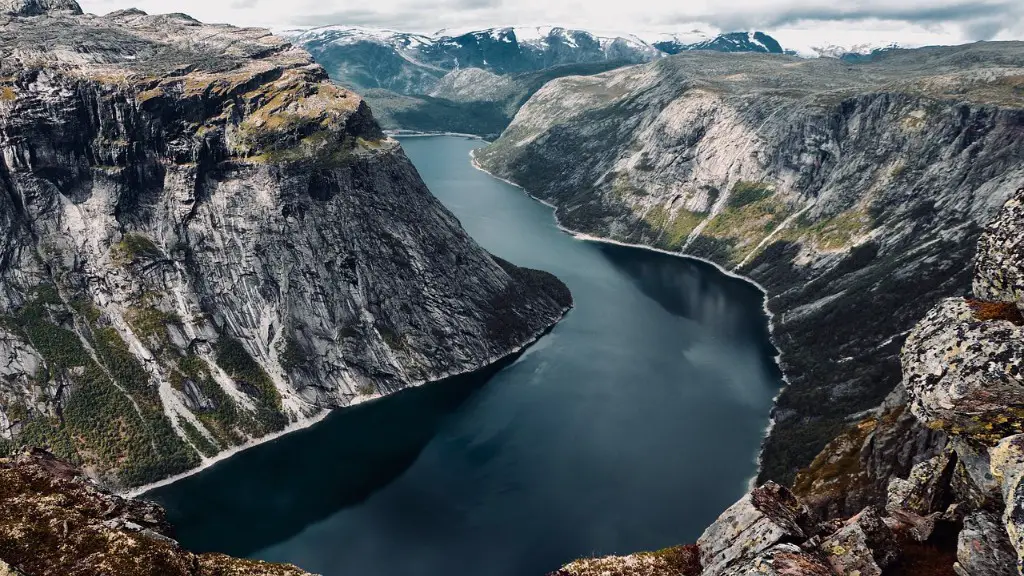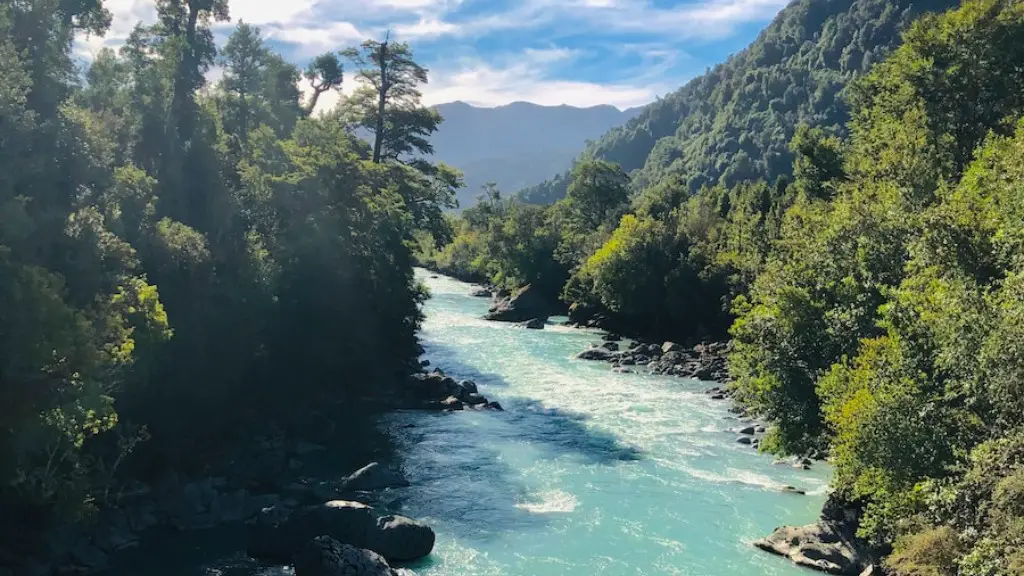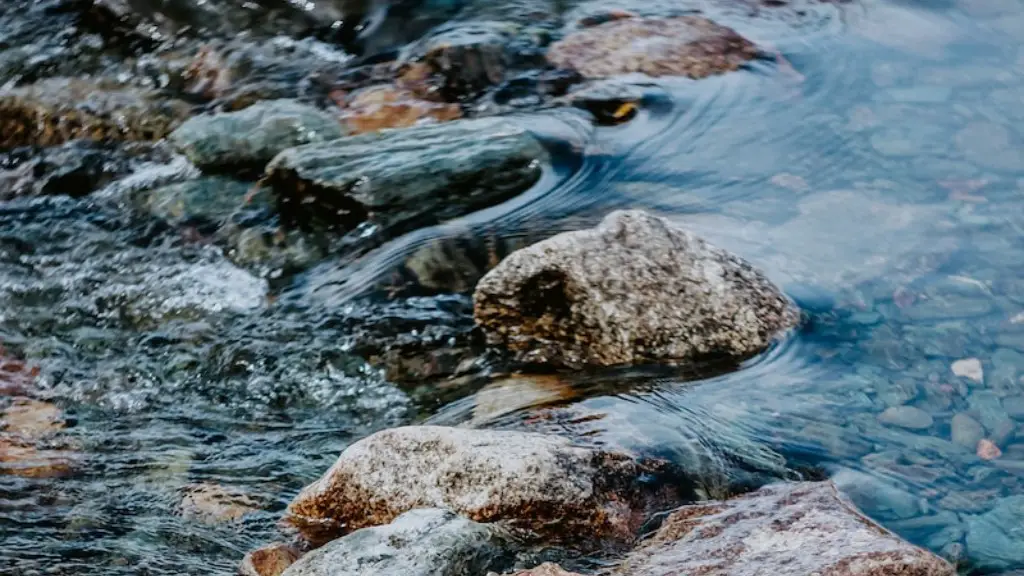The Mississippi River Delta is a wetland, also known as the seventh largest river delta in the world and located in the southeastern United States. It covers an area of approximately 7,000 square miles and drains an area encompassing 51% of the continental United States. The Delta is an important bird and wildlife habitat, serves as a critical regional resource for agricultural and industrial goods, and has been an important center of Native American culture for many centuries. The Delta region is one of the most difficult and diverse ecological systems in North America, and is threatened by pollution, invasive species, climate change, and other factors.
The Mississippi River Delta is a complex and dynamic wetland that includes swamps, marshes, deltas, marsh islands, saltwater wetlands, and more. The Delta is a mix of freshwater and brackish water environments that have evolved over time into intertidal and saltwater wetlands. The swamps are usually dominated by trees such as bald cypress and swamp tupelo, while the marshes are characterized by grasses, rushes, and sedges such as bulrush. These wetlands create a buffer zone between the river and the shoreline, trapping sediment and providing a habitat for a variety of wildlife. The Delta is also an important bird migration corridor, and is home to many species of fish, amphibians, reptiles, and mammals.
The Delta’s wetlands provide valuable habitat for many species of flora and fauna. This includes endangered species such as the American alligator, the Alabama shad, and the purple pitcherplant. Other animals such as beavers, otters, muskrats, and turtles can also be found in this wetland. Additionally, the Delta’s wetlands provide habitat for a wide variety of migratory birds, including geese, ducks, herons, egrets, and more.
The Mississippi River Delta is home to many Native American tribes, including the Choctaw and Chitimacha. These tribes have a long history of living in and around the Delta, and they have a deep respect for the land and its resources. In recent years, this region has become increasingly valuable to Native American communities, as the Delta serves as an important source of traditional foods, such as fish and shellfish.
The Delta is also important to the region’s economy, serving as an important source of agricultural goods such as rice, seafood, and timber. Additionally, the Delta is the largest oil and gas producing area in the nation, and serves as an important source of jobs and income in the region. Despite its important ecological and economic roles, the Delta is threatened by a number of environmental concerns, including pollution, climate change, and erosion.
The Challenges Facing the Mississippi River Delta
The Mississippi River Delta is one of the most important wetland systems in the United States, but it is also one of the most threatened. Climate change is already impacting the Delta, leading to rising sea levels, increased erosion, and increased storm intensity. Additionally, the Delta is vulnerable to pollutants and to the introduction of invasive species, which can cause long-term damage to the region’s fragile ecosystems.
The Delta is also threatened by the dramatic loss of wetlands, which continues to reduce the region’s important floodplains and marshes. Many of these wetlands are disappearing due to human activities, such as agricultural development and urban sprawl. Additionally, the construction of dams and levees restricts the flow of water through the Delta, leading to sediment buildup and land degradation.
In addition to these issues, the Delta is threatened by the potential effects of oil and gas drilling. The Delta is a major source of oil and gas, but such drilling can cause damage to sensitive ecosystems and can lead to water contamination. As a result, it is important to ensure that any drilling activities are carefully regulated and monitored.
Finally, the Delta is threatened by the ongoing effects of climate change, which is likely to lead to further sea level rise, changes in precipitation and runoff, and extreme weather events. As a result, it is important to monitor climate change closely and to develop strategies to limit its effects on the Delta.
Protecting the Mississippi River Delta
The Delta is an important environmental, economic, and cultural resource, and it is essential to protect it from further degradation. The U.S. government has implemented a range of programs to protect the Delta, such as the Wetlands Reserve Program, which provides incentives for landowners to protect and restore wetlands.
Additional regulatory measures are needed to ensure that the Delta is protected from further development, pollution, and other threats. Additionally, it is important to develop strategies to increase the resilience of the Delta to the impacts of climate change. These strategies should include restoring wetlands and protecting coastal areas.
Not only is it important to protect the physical environment of the Delta, but also the culture and way of life that have been maintained by its native people for generations. This is why it is important to support local communities, who rely on the Delta for their livelihoods. This can include providing funding for community education initiatives, supporting traditional arts and crafts, and providing job opportunities for local people.
Finally, it is important to raise public awareness about the importance of protecting the Mississippi River Delta. This includes sharing information about the Delta’s unique features and how it can be protected, as well as publicizing initiatives to protect the Delta from development, pollution, and other threats.
The Role of International Partnerships in Protecting the Mississippi River Delta
The Delta is an international resource, and it is important to involve international partners in the effort to protect it. International organizations such as the United Nations have an important role to play in protecting the Delta, as they can provide support and funding for conservation programs and initiatives. Additionally, international partnerships can provide an opportunity to share knowledge and experience, as well as to build capacity in the region.
It is also important to include local communities in international initiatives to protect the Delta. Local people have a deep connection to the Delta, and it is essential that their voices are heard. This includes providing them with the opportunity to participate in decision-making processes, and ensuring that their voices are respected and their interests are taken into account.
Finally, international partnerships can provide an opportunity to leverage global resources for the benefit of the Delta. This can include funding from organizations such as the World Bank, or advice from experts from around the world. These resources can help to ensure that the Delta is protected for generations to come.
Conclusion
The Mississippi River Delta is an important wetland system, with great ecological, economic, and cultural value. It is essential to protect the Delta from further degradation, and international partnerships can play an important role in this effort. It is also important to involve local communities in any efforts to protect the Delta, as they have a deep connection to this unique resource.
Global Efforts to Restore the Mississippi River Delta
The Mississippi River Delta is an important wetlands system, and many global organizations are actively working to protect and restore it. Organizations such as the United Nations have developed international cooperation initiatives to protect the Delta, with the hopes of slowing climate change, increasing the resilience of the region, and alleviating poverty.
In addition to global organizations, local communities are actively working to restore the Delta. This includes participating in evidence-based research, restoring wetlands, and protecting bird habitats. These efforts are essential, as local communities are best positioned to understand and protect the Delta’s unique ecosystems.
Restoration programs are also supported by funding from major foundations and other agencies, providing for mitigation and regional planning projects. These projects provide necessary funding for research and conservation efforts, and can help to ensure the long-term sustainability of the Delta.
Worldwide, efforts to restore the Mississippi River Delta have resulted in greater awareness of the importance of the Delta, and a greater understanding of the threats facing it. As a result, there is growing consensus that protection and restoration of this region are essential both for the challenge of mitigating climate change, and for protecting the people, wildlife, and resources of the Delta.
Adapting to Climate Change and Mitigating Its Impacts on the Mississippi River Delta
The Delta is facing a range of direct and indirect impacts from climate change, from increased flooding to altered rainfall patterns. The Delta’s ecosystems and human communities must become more resilient in order to survive these changes. To do this, regional and global collaboration and planning are essential.
Adaptation strategies should focus on reducing exposure to climate change impacts, such as flood mitigation and stormwater management. Such strategies can involve restoring wetlands, strengthening building codes, and installing flood-control devices. Additionally, communities can develop strategies to protect cultural resources and set up early warning systems.
It is also important to address the indirect impacts of climate change, such as air and water pollution, changes in land use, and decline in soil fertility. This can involve developing strategies to improve air and water quality, protecting biodiversity and restoring critical habitats, and conserving natural resources. These strategies can involve both governmental and local initiatives.
The Delta is an important resource for both wildlife and people, and it is essential that we protect it from the most damaging impacts of climate change. Regional and international collaboration and planning, as well as local efforts, can help ensure that future generations can continue to enjoy the Delta’s many wonders.
Why the Mississippi River Delta is Unique and Important
The Mississippi River Delta is an important wetland ecosystem, with a rich cultural heritage and diverse wildlife. This wetland is home to over 300 species of birds, numerous endangered species, and many other forms of wildlife. It is also home to many Native American tribes, whose way of life is deeply connected to the Delta’s resources.
The Delta is a critical source of food, providing important sources of traditional foods to local communities. It is also an important economic resource, providing jobs, opportunities, and resources to the region. Additionally, the Delta is an important source of natural resources and energy, such as oil and gas, providing both jobs and revenue.
The Delta’s scenic beauty, unique cultural heritage and rich wildlife make it one of the most unique and important wetlands in the United States. Its protection and restoration are essential, both for the welfare of the region’s human communities and for the preservation of its incredible ecosystems.
